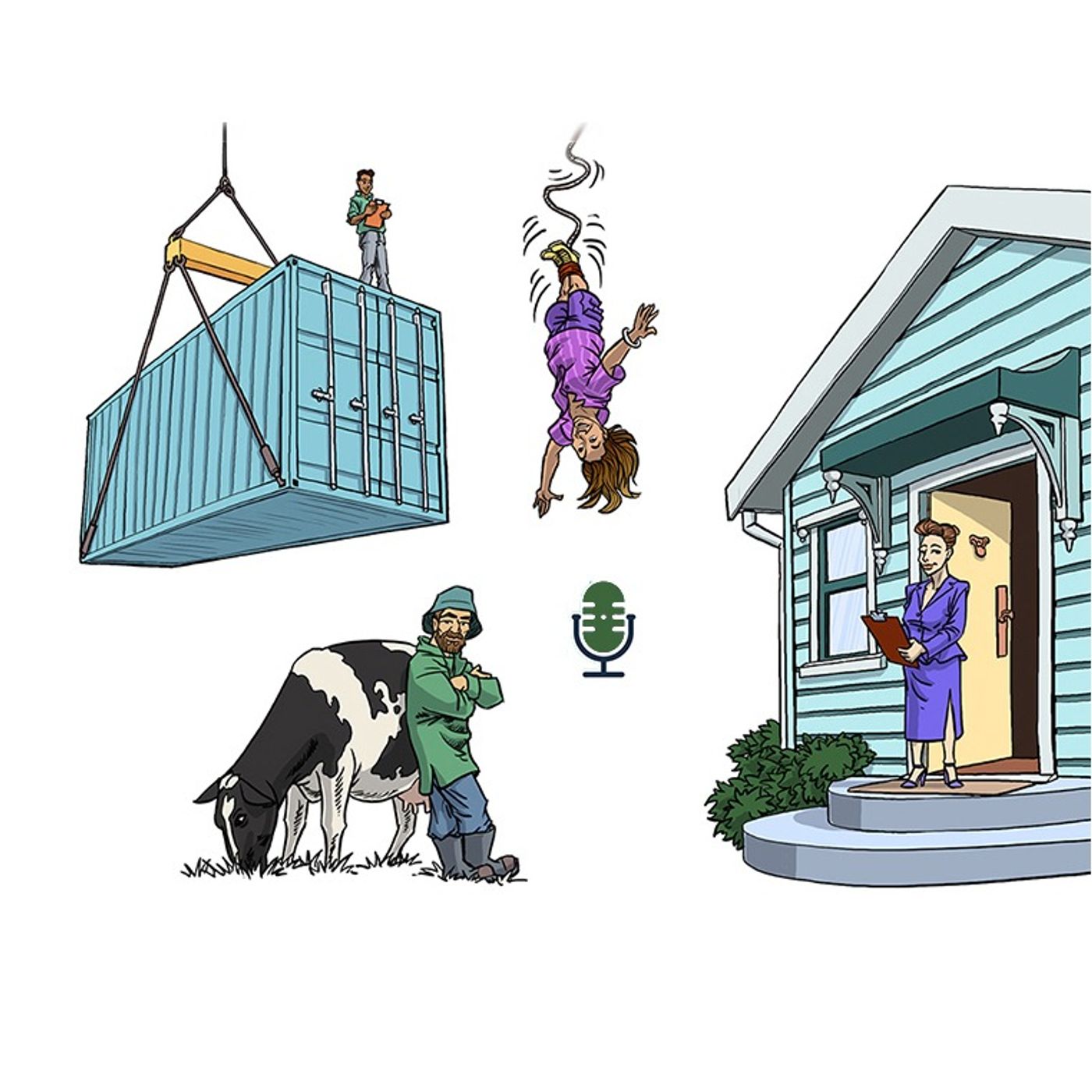Kylie Walker: What the mission-driven Future Made in Australia approach is & what it could mean
Description
The Australian Government's a Future Made in Australiainitiative could attract skilled migrants and potentially investment and entrepreneurs from New Zealand, and ultimately be a catalyst for a much more sustainable future, says Kylie Walker, the CEO of the Australian Academy of Technological Sciences & Engineering.
In last month's budget, Prime Minister Anthony Albanese's government unveiled a Future Made in Australia, saying this would invest A$22.7 billion over a decade to "build a stronger, more diversified and more resilient economy powered by clean energy, in a way that creates secure, well paid jobs and delivers benefits to communities across the country."
Speaking in the latest episode of interest.co.nz's Of Interest podcast, Walker says a key aim of the initiative is to boost Australia's economy complexity, a measure of the knowledge in a society as expressed in the products it produces, by upskilling and moving up the value chain.
"Obviously, we can't do everything, but we can absolutely do more than just digging up [natural resources such as minerals] and selling them off and then buying them back again in more technologically sophisticated forms. We know that those critical minerals are absolutely necessary for the ongoing electronics revolution, as well as for the clean energy future globally. So we can, for example, process our iron ore, or it can be used in or [turned] into green iron, at least, so that it can be used in green steel. And we have the minerals to make batteries for electric vehicles, for example. We have extraordinary batteries technology. Some of our researchers and developers in that space are amongst the best in the world. And so it seems to me, putting these two kind of natural assets at either end of that development spectrum together, that there ought to be a way to move us a little bit further along the value chain," Walker says.
To this end there'll be a need for skilled workers, especially in STEM (science, technology, engineering, and maths).
"Around 48% of professional occupations were in shortage across Australia last year, and that's up from 39% the year before. There's a similar shortage in the technical and trades occupations in Australia. So we are both going to have to train new people domestically as a matter of priority, and in addition to that, rely on skilled migration. And, you know, I think traditionally it's probably reasonable to assume some of that skilled migration might come from New Zealand," she says.
There should also be a role for private sector investment, research, development and ideas. Much of the earmarked government investment takes the form of tax incentives, but also includes a range of funding mechanisms.
"One of the other focus areas that we've got simultaneously with this Future Made in Australia push is, of course, building capacity in the global region. And there is a huge place, a huge part to play for New Zealand, for Pacific island nations and other near neighbours like Indonesia, in collaborating to research and commercialise those developments, particularly in the technology and engineering spaces, and to do that for mutual benefit, so that we build the capacity for the entire region," says Walker.
Ultimately, Walker hopes in 20 or 30 years, a Future Made in Australia can be looked back on as a catalyst for a more sustainable future.
"And I mean that both in terms of economically sustainable and societal wellbeing, and in terms of environmentally sustainable. I think if we do this really well, we can build a more circular economy, we can reduce our waste as well as our emissions. We can see small scale manufacturing and pop up factories all over the place. There are some really, really interesting and pretty great technologies coming up where, for example, a micro-factory the size of a shipping container can take glass and fabric being recycled from a building site and turn it into a new material to use in a new building on the same site. I'd like to see huge and widespread adoption of renewables [energy]. And I'm hoping that when we look back, we see not only that resilient infrastructure within Australia, but a booming export market for those products as well, ranging right through from the energy and the fuels, through to those slightly value added up the chain minerals exports, green agricultural exports as well, and a range of other stuff which, frankly, you and I haven't heard of because it probably hasn't been invented yet."
In the podcast Walker also talks about where a Future Made in Australia comes from, what's behind it, what needs to happen for Australia to become a renewable energy superpower, green hydrogen, mining, critical minerals, concerns about a Future Made in Australia picking winners and benefiting billionaires, its national interest framework, research and development, and how Australia can get along in a world of rising geopolitical tensions between the United States and China.
























